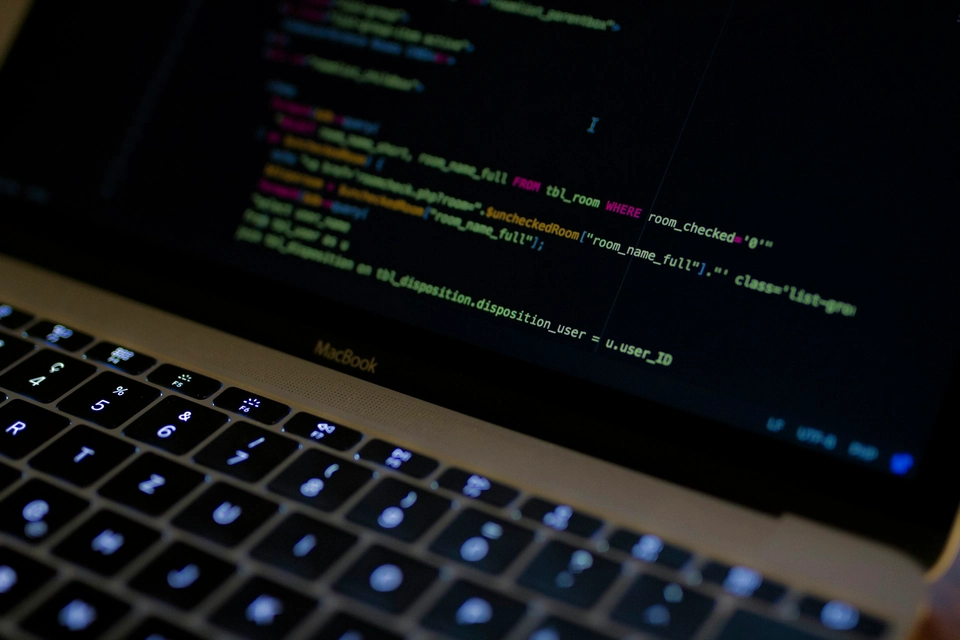- Introduction
- Why AI?
- What the survey says
- The impact AI has on hiring rate
- Is my job at risk?
- The actual impact AI will have
- Conclusion
How will AI impact the job market and should I be worried?
Introduction
Artificial Intelligence is a highly trending topic, with a lot of discussion focusing on the negativities and risks of using AI. Some of the main points of discussion range from highlighting the need for Multimodal AI (AI that can work with multiple data formats, e.g. Images and Text) to the dialogue around how AI will impact the workforce; either through creating an augmented work environment or the extreme idea of AI replacing workers.
A recent article [1] has been trending on LinkedIn with the results of a survey that asked some of the top business leaders their views on the impact AI will have within their workplace. This blog will dive into the results of this survey and debunk some of the key takeaways that are circulating in the media.
Why AI?
To fully understand the impact AI will have on the workspace, we first need to delve into why we are hearing about AI in general. What is it all about? And why is it impacting the workplace?
Artificial Intelligence, in its simplest form, is a fancy term for some software that can be trained up to do a specific task efficiently. This could be anything from categorising mushrooms to writing job specs and it’s that latter application causing tremors of worry. If an AI algorithm can be generated to do pretty much any task, why do we need employees anymore?
However, one article [2] summarising the findings from the Adecco Groups 2023 survey, explained that even though many tasks in the workplace can be automated through AI models, it does not mean that it will replace the entire workforce. But where exactly is the line drawn between public interest and organizational efficiency?
What the survey says
The Adecco Group conducted a survey at the end of 2023, which involved 2000 company leaders worldwide. The survey aimed to explore the perspectives of these leaders on AI, examining every aspect of integrating AI into the workplace in detail.
It is widely recognised by most surveyed that AI will be a game-changer within their industry, with a minority of these companies taking significant action to adapt the workspace for a digital transformation. Additionally, 57% of these leaders acknowledged that their entire leadership team lacked sufficient AI skills and knowledge and 59% were already taking action to strengthen development in this area.
Interestingly, the article stated that 41% of companie surveyed said they will employ fewer people in the next five years and 46% will redeploy people due to the impact of AI – The impact of AI on the workforce in the upcoming years is undeniable.

The impact AI has on hiring rate
For most, these statistics like likely induce panic. However, by delving deeper into the data, we can uncover a more optimistic outlook.
These projections are made on the assumption that these companies will have less space for new hires as AI will have filled that role already. Even Generative AI has its limitations. If every company invented a new AI solution to replace specific workers, people would be needed to maintain the model and audit the outputs to guarantee the highest quality of AI model used. Even then, a more effective use of Artificial Intelligence is to aid the work of current workers, not replace them, which 3/5 of the survey respondents have the foresight to realise.
When the same company leaders were asked what their approach to filling the AI skill gap was, the response was that they would look to hire more specialists within the AI field to fill these gaps instead of pursuing internal training and skill development. Despite 41% of company leaders saying they will hire less in 5 years, 60%+ of these company leaders admit to having an increased hiring rate now!
These leaders acknowledge and admit to there being a vast skill gap when it comes to AI skills and knowledge, which is an accurate statement for most companies that don’t have AI as a main product already. Every company will become more productive if the entire workforce becomes AI literate, especially if they are developing a bespoke internal tool.
Is my job at risk?
A lot of discussion here has been made about bespoke AI tools and replacing workers, but we need to focus on what jobs are realistically at risk. We are seeing AI tools being developed for workplace efficiency which will primarily speed up communication and workability within the workplace.
It is widely acknowledged that the development of AI will need to be in tandem with the development of the professional. With the growth of both, we will see a new focus on the human ability and the skills of the individual.
Jobs will look different in 5 years, but this doesn’t mean your job is going anywhere, just evolving to incorporate AI as a supportive tool. Do you spend lots of time writing minutes in a meeting? Well, you will have an AI tool to help speed up your note taking! Do you need to respond to social media posts for engagement? An AI tool will uplevel your content to be more engaging!
.jpeg)
The actual impact AI will have
At the end of the day, Generative AI is becoming more and more prevalent in our daily lives, an inevitability nobody can avoid. The approach companies need to adopt is one that grows digital trust and allows the entire workforce to use AI as a tool and not something to be feared as a replacement.
A solid framework for how to use AI responsibly is required for businesses to be successful. A responsible use of AI is not replacing the workforce with lines of code, it is introducing the AI to the workforce to allow everyone to use it to make their work more efficient.
Introducing AI into the workforce throughout is the key to allowing the workers to grow in creativity, introducing faster turnarounds and allowing for a more efficient workforce with higher morale. As these traits grow within the workforce, the usefulness of uniquely human skills will grow, leading to the hiring process to flourish.
Conclusion
In conclusion, if you are a person stuck in the job application pipeline you have nothing to fear, these jobs aren’t going anywhere. In fact, to get ahead you should be proactive and develop more AI-oriented skills, maybe check out some more of our Blogs that do a deeper dive into this subject!
Alternatively, if you are a company, don’t be afraid to introduce AI into the workplace, but remember that AI is not a replacement for human qualities.
Author: Ethan Cooper (Integrations specialist)
Start Building a Fairer Workplace With Us
Dive into the future of work with our expertly crafted solutions. Experience firsthand how MeVitae’s AI-driven solutions can make a difference. Request a demo or consultation now.
